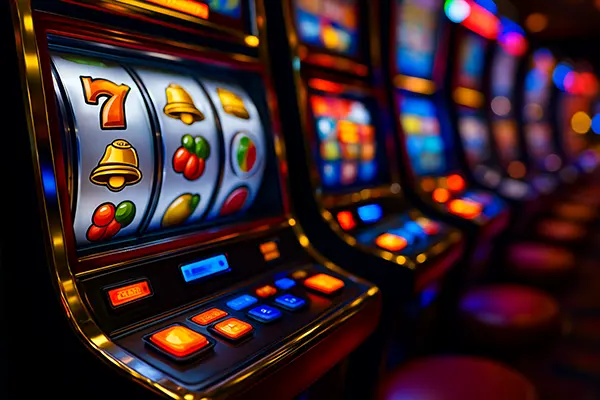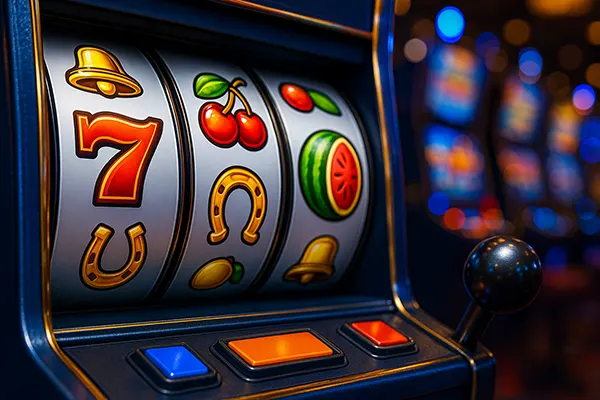
Slot machines have captivated players for decades, promising the allure of instant riches with just a spin. However, amidst the vibrant lights and pulsating sounds, a persistent question remains: Is there a way to consistently beat the slots? The debate over strategies to win at slot machines is filled with myths, misconceptions, and a few kernels of truth. In this article, we will dissect the reality behind these claims and explore whether any genuine winning strategies exist.
The internet is awash with purported strategies claiming to beat slot machines consistently. Many of these strategies, however, are rooted in myths rather than factual evidence. One of the most common misconceptions is that slots operate on a cycle, and that by observing patterns, players can predict when a machine is due for a win.
In reality, modern slot machines are driven by Random Number Generators (RNGs), which ensure that each spin is entirely independent of the previous one. This means that there is no cycle or pattern to exploit, debunking the myth that a machine is “hot” or “cold.”
Another prevalent myth is that betting higher amounts increases the chances of winning. While it is true that some slots offer higher payout percentages on maximum bets, this does not alter the random nature of each spin. The odds remain the same regardless of how much you wager.
Unlike skill-based casino games like poker or blackjack, slots are purely based on luck. The outcome of each spin is determined the moment you press the spin button, and no amount of skill or strategy can change the result. RNG technology guarantees that each outcome is unpredictable.
This randomness is the core reason why slot machines are often called “games of chance.” Players should approach slots with the understanding that wins are purely coincidental rather than the result of any deliberate strategy.
Furthermore, progressive jackpot slots, which can offer life-changing payouts, are equally governed by randomness. The allure of a progressive jackpot can make players believe that the machine will eventually pay out, but the reality is that each spin remains an independent event.
Although there is no foolproof way to guarantee wins on slot machines, some practical strategies can enhance the overall gaming experience. The first and most important is bankroll management. Setting a budget before playing helps maintain control and prevents overspending.
Choosing the right slot machine can also influence your gameplay. Opt for slots with a higher Return to Player (RTP) percentage, as they statistically offer better long-term returns. However, this does not guarantee wins, as RTP is calculated over millions of spins.
It’s also beneficial to set loss and win limits. Deciding beforehand how much you are willing to lose and when to walk away after a significant win can keep your gambling in check. While these strategies do not increase your chances of winning, they do help in maintaining responsible gameplay.
Slot volatility, or variance, refers to the frequency and size of payouts. Low volatility slots tend to pay small amounts frequently, while high volatility slots offer larger payouts but less often. Understanding this can help players choose slots that align with their risk tolerance.
If you prefer consistent, smaller wins, opt for low volatility games. If you are chasing a big jackpot, high volatility slots might be more appealing. Knowing the volatility can help set realistic expectations during play.
Combining an understanding of volatility with bankroll management can enhance your gaming session, making it more enjoyable and less financially risky.

One of the most persistent myths is that casinos manipulate slots to make players lose. While it may seem like a machine is deliberately withholding wins, the reality is quite different. Regulatory bodies strictly monitor slot machines to ensure fair play and adherence to RNG standards.
Another misconception is that physical manipulation of the machine, like pressing buttons in a specific order or timing the spins, can influence outcomes. Modern digital slots eliminate this possibility, as the outcome is already determined before the reels even start spinning.
Additionally, there is no evidence to support the idea that casinos alter machines based on a player’s betting pattern or time spent playing. This belief stems from a lack of understanding of how RNGs work.
Human nature tends to seek patterns even in random events, and this desire fuels many slot myths. The excitement of a near miss, where the winning symbol is just one spot away, also reinforces the illusion that a win is imminent.
Casinos capitalize on this psychological aspect by designing slots with animations and sounds that suggest a near win, keeping players engaged. Understanding the psychology behind these perceptions can help players approach slots more rationally.
Ultimately, the best approach is to view slot gaming as entertainment rather than a means of making money. By acknowledging the randomness, players can enjoy the experience without falling into the trap of chasing losses.